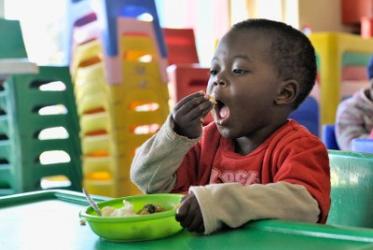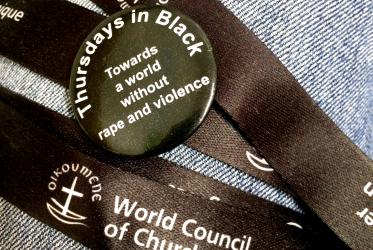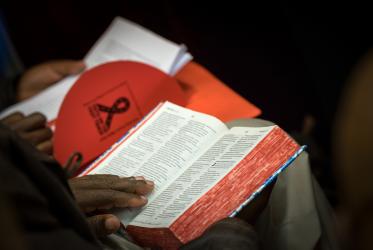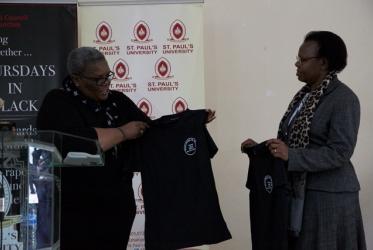Displaying 21 - 40 of 47
19 October 2018
“God has brought ways of defeating HIV”
31 October 2017
UN discussion focuses on women, HIV and property rights
21 March 2017
Bible study gives hope as youth reflect on HIV
02 November 2016
Zambia: “On HIV, we do not compete. We work together.”
20 October 2016
Kenya: Voice of faith communities crucial in overcoming HIV
14 October 2016
Sorry child, but I’m HIV-positive
10 December 2015
Placing family in the HIV response vanguard
10 December 2015
WCC group evaluates ecumenical HIV and AIDS response
29 June 2015














